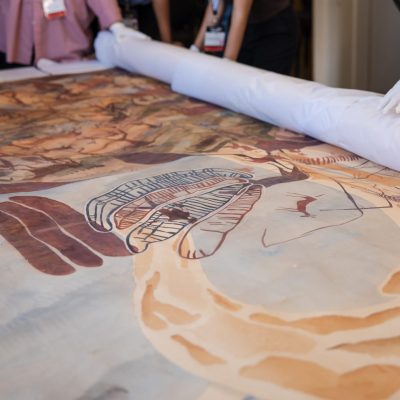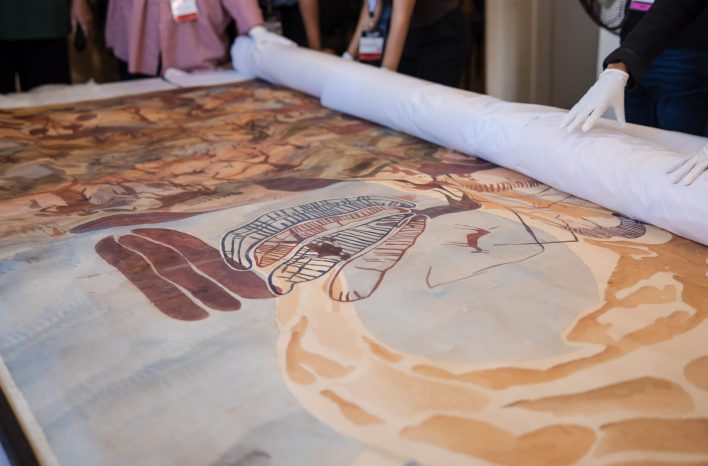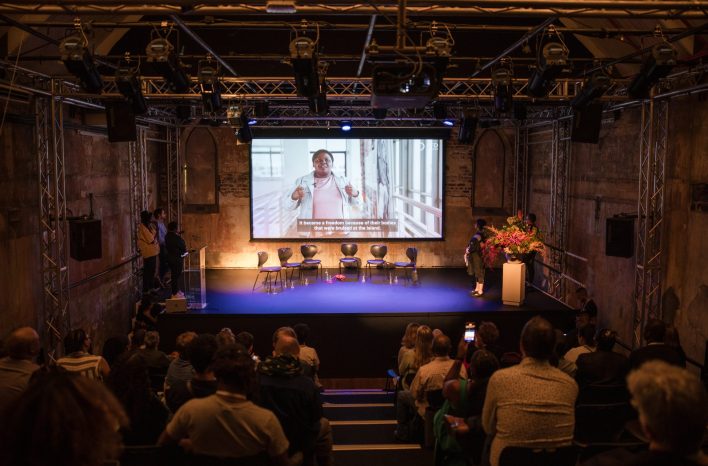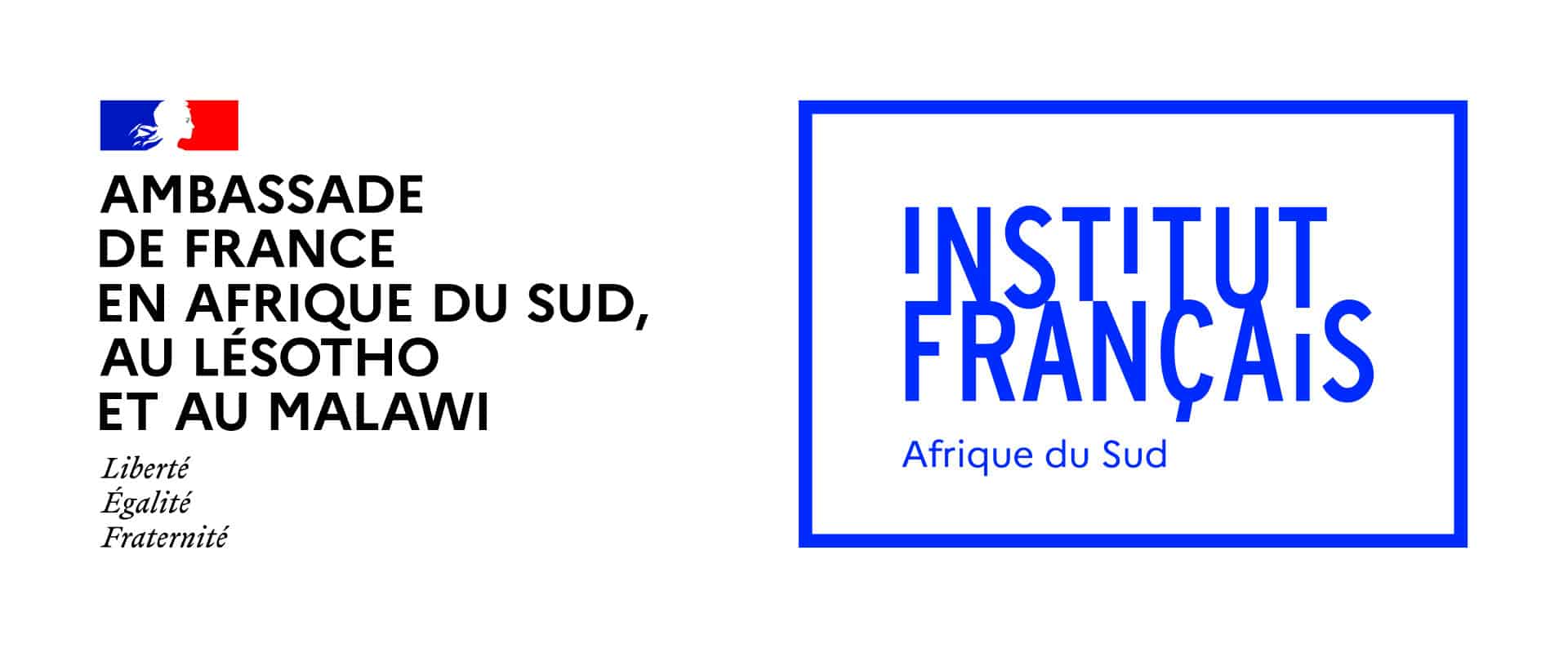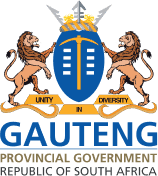By: Chisomo Jolam Chakuda
Has colonisation and valorisation of Western cultures and values in the colonial process eroded African culture? Should the work for restitution focus on reinstituting Africa’s cultural practices in the same way it advocates for the return of objects and ancestors? One’s heritage and roots are something to be proud of and cherished. Africa has a rich heritage that is less appreciated. This article is a discussion on how African heritage can be healed, making it more vibrant, in a way that individuals in African society may feel ownership over it. In many ways, we speak of repatriation and restitution as a form of bringing back to life our lost cultural heritage, but it is high time we appreciate what Africa’s rich cultural heritage is, and seek to revive it, by way of restitution and repatriation.
This article is based on the discussions that occurred in Cape Town, South Africa from 13th to 15th February 2024 during the Reimagining Heritage, Archives and Museums: Today/Tomorrow convening, organised by the French Institute of South Africa and the French Embassy. The convening brought together diverse experts and professionals from over 50 countries within the field of heritage, archives and museums.
By the concept of reimagining archives, the convening sought to find new approaches to preserving and presenting cultural and historical information. This could involve incorporating new technologies, engaging with diverse perspectives, and exploring innovative ways to make these resources more accessible and relevant to contemporary audiences. It’s about finding creative ways to honour and share Africa’s collective history in a way that resonates with people today.
Several themes were discussed during the convening, which lasted for three days. On 14th February, a roundtable discussion under the theme ‘repatriation and restitution’ occurred. In its primary principle, the ideas of repatriation and restitution posit that lost or stolen heritage materials should be given back to the owner. Realising that more than giving the lost heritage is needed, this article aims at discussing ways of healing African cultural heritage, which has been lost in many ways, such that it goes beyond repatriation and restitution, to restitution.

How African cultural heritage is lost
In so many ways, African heritage has been, and is still, lost. One significant reason is the impact of colonisation and the transatlantic slave trade which resulted in the erasure and distortion of many aspects of African culture, including language, traditions, and belief systems. Achille Mbembe emphasised this deep loss by stating that what Africa has lost as a result of Europe’s engagement with it is priceless. “It cannot be reimbursed. It is so colossal, that even if Europe wanted to give it back, it wouldn’t be able to. Africa suffered radical loss in our engagement with Europe. That is the starting point on any deep reflection on restitution and there is no any in which Africa will ever recover what it has lost.”1 This statement comes with the realisation that even if what we lost is given back, it will depend on the reaction of the original communities, whether they will accept it or not. Additionally, the meaning of such objects may not carry the same weight as when they were taken from the continent. The most stunning part is that the request for the return of such objects from Europe are time and again rebuffed with paternalist, imperialist, self-centred and racialised statements such as “the treasures are better protected in Europe’’; “the treasures are seen by more persons in Europe than if they were to be returned in Africa”; “scholars still need to work on them”; “African museums do not have the security and environmental conditions that European museums have”; “legal difficulties around deaccessioning”; and many more2. But what Africa has lost is not just about the objects that have been taken away from the continent. The imposition of colonial rule led to the suppression and marginalization of indigenous African practices, as well as the promotion of Western cultural norms and values. To create a world that reflected imperialism, the process of alienation and marginalization prevented Africans from developing their own culture3. In so many ways, Africans were made to accept Christianity and abandon their traditional religion(s). The 19th century faced massive conversion of Africans from African Traditional Religions (ATR) to Christianity and Islam4. Christianity and Islam rejected most ATR practices, including songs and dances. In some instances, force was used to convert Africans to Christianity or Islam. To further entice Africans to leave ATR and their cultural practices, missionaries engaged in medical practices, pastoral visitation, and vocational training for young men and women.
Rapid urbanisation, globalisation and modernisation have also played a role in diminishing the importance placed on African heritage. As societies evolve and adapt to new technologies and ways of life, traditional practices and customs are seen as outdated or less relevant, leading to a decline in their preservation and transmission to future generations. This has greatly affected the African cultural heritage.
In so many ways, in a world of globalisation, new cultures have emerged in African societies, which is not easy to reverse. Confronting globalisation usually puts African cultural heritage in a dilemma, since many benefits are derived from modernisation, a product of globalization. Music and dances have been greatly affected; contemporary music borrows much from the Western genre. For the youth, it is so difficult to advance a career using African traditional songs.
Economic disparities and social inequalities are equally important in many African countries, contributing to the neglect of cultural heritage as resources and attention are channelled and directed towards more pressing issues such as poverty alleviation, healthcare, and education. The world is facing many challenges, and for people to consider heritage loss as an equally significant matter that calls for significant attention is very rare. With population increases, governments have huge responsibilities not to overlook their citizens, and with the limited resources that governments have in Africa, heritage consideration is left at the peripheries. Funding was a major concern during the discussions at the Reimagining Heritage, Archives and Museums: Today/Tomorrow convening.
Restoring and preserving African cultural heritage
It is essential to recognise the value of African heritage and take proactive steps to preserve and promote it. Reinstating African heritage involves a collective effort to reclaim, preserve and promote the diverse cultural traditions, practices, and beliefs that form the foundation of African identity.
The Reimagining Heritage, Archives and Museums: Today/Tomorrow convening produced interesting ideas about restitution and repatriation as one way of healing the lost African heritage. Heritage restitution is much more than the mere act of returning and repatriating the heritage objects to the communities and countries of origin. Far from that, it is also about recognising and acknowledging that violent expeditions led to the dispossession of Africans of their heritage. Being a dehumanizing agency, these expeditions resulted in Africans losing their dignity and identity. Some Africans are convinced that holding countries (countries that looted African heritage objects) have accumulated wealth through museum entry fees using the exhibition of looted African cultural heritage objects. To the extent that some exhibitions are solely based on African heritage.
Heritage restitution should involve narratives of redress, repair, restoration and justice where injustices were experienced in African societies. Restitution and repatriation should be done under a reparative model which includes compensation, measures of satisfaction, and guarantees of non-repetition.
Correcting colonial narratives which possess stereotypes about Africa, is very crucial to reviving the lost glory of African heritage. Narratives define the past, present and future generations. Stories matter. Stories have been used to dispossess and reduce African heritage as inferior, to the extent that one wonders how and why Europe would loot African heritage, if they describe it as “primitive”.
But stories can also be used to empower, humanise and repair broken dignity. For restitution projects of African heritage objects to be more meaningful, they should be projects initiated and largely driven by the holding countries. It is fast and friendly only when the holders acknowledge the problem, and take the initiative to return the objects. But in so many ways, holding countries tend to want to continue playing the colonizing role, and this infringes effective restitution. Education and awareness are vital pillars in the process of healing African heritage. Incorporating history, culture, and heritage into educational curricula at all levels can help raise awareness and appreciation for African tradition among younger generations. This includes teaching about the significance of traditional dances, music, art, languages, and religious practices. Africa has always been known as the keeper of indigenous knowledge and heritage. This can be a significant contribution towards formulating a decolonised education at institutions of higher learning. For decades, African heritage has been the resonant force that has kept Africa largely united and unique5. Although the academic project has stimulated many research enquiries into fields of African heritage, there is much to be done using current technology.

In a presentation done by Khaulah Abdulkadir and Anella Lupuwana during the Reimagining Heritage, Archives and Museums: Today/Tomorrow convening, digitization of African heritage was a recommended strategy for revamping and preserving African heritage, while easing its access. Abdulkadir and Lupuwana depicted digitisation efforts in South Africa and Kenya. The methodology of oral knowledge preservation in Africa presents a challenge to the indigenous music, poetry, dance and other intangible heritage because it means that most of the existing knowledge is undocumented and un-digitised.
Cultural preservation, which includes supporting initiatives that focus on preserving and documenting African heritage, such as establishing cultural centres, open space museums, and digitisation of archives dedicated to showcasing traditional practices and artefacts, is equally important in healing and revamping African cultural heritage. Efforts in these categories ensure the accessibility of heritage materials to the masses easily. Establishing cultural centres would help to bring cultural performances such as dance and music, as well as ritual performances that foster preservation of cultural heritage, which may be termed as cultural exchange and collaboration.
A significant aspect of the convening was its capability to include artistic performances. It could have been more vibrant if the convening had facilitated cultural exchanges across African communities. The convening offered ideas of partnership between African communities and international organisations to promote cross-cultural understanding and appreciation. Through workshops and exhibitions, the convening provided a good example of how best we can heal lost African heritage. This may be extended to the traditions of Africans, in which most cultural performances are done during political gatherings. During the 2019 presidential campaign Malawi, some presidential candidates promised to dismantle and ban cultural performances during political rallies on the basis that they represented the dictatorship traits of the one-party era, presided over by the late Dr Hastings Kamuzu Banda, soon after Malawi got independence from British colonial rule. I beg to differ. Instead, such performances during political gatherings are beneficial as they expose the country’s unique heritage, whilst promoting cultural exchange as diverse performances are done during such political ceremonies. These may act as open museums, facilitating access to heritage on a free basis, and take advantage of political rallies which attract a great multitude. What Africa needs is to intensify efforts in redeeming whatever is redeemable6. A cursory look at the history of African culture as a continent reveals that the entire region is rapidly undergoing a rudimentary phase of cultural revolution, which is both positive and negative7. Meanwhile, cultural globalisation has almost completely eroded the rich cultural heritage of Africa, as globalization tends to transmit the cultural patterns of economically developed countries to the rest of the world. Intensification efforts towards the indigenisation of Africa’s education system before its cultural heritage is completely wiped out by the forces of globalisation are of particular importance8. Valuable customs are rapidly going extinct. If so-called global integration leads to the loss of what defines humanity, then African peoples are lost, and so too is the continent.
Why preserve African cultural heritage?
Preserving African heritage such as traditional dances, music and religion is crucial for several reasons. These cultural practices are an integral part of African heritage and identity, reflecting the rich history, beliefs, and values of diverse African communities. By safeguarding and promoting cultural heritage, future generations can connect with their roots, fostering a sense of pride and belonging. These cultural practices serve as a form of storytelling, passing down oral traditions, rituals, and spiritual beliefs from one generation to the next. They provide a platform for cultural exchange, promoting understanding and appreciation of Africa’s diverse cultural tapestry both within the continent and globally. In an article titled The Music of Dance, Oikelome (2019) describes African music and dance performed in many cultures as a form of emotional expression, social interaction or exercise and a spiritual setting used to express ideas and stories9. The most interesting part of these cultural practices is the super connection they have in the role they play. African Traditional Religion is accompanied by music and dance. The belief in the effectiveness of ritual practices rests upon traditional songs and dances. Being part of religious ceremonies and social rituals, songs are used in rites of passage such as birth, coming of age, marriage and death. They are used for curing the sick and bringing rain. In northern Malawi, a traditional dance known as Vimbuza is a healing dance which is accompanied by songs, and usually performed at night. Equally important are the people from the southern region of Malawi in Nsanje district, who use M’bona Cult as their system of religious beliefs and rituals to call the rain while dancing and singing. According to oral tradition, M’bona was a legendary figure with super human powers of bringing rain, creating wells of water on sandy lands, creating forests where they did not exist, and hiding from enemies by turning into other creatures. Khuluvi, a sacred shrine located in Nsanje district, in the lower shire valley, is a ritual place used to worship the spirit of M’bona. From this site, other sacred sites sprouted and extended widely to other parts of Malawi, and adjacent parts of Mozambique where people gather to worship the spirit of M’bona.
In all African cultures, dances, music and religion define the role of the individual and the group within the community. In some societies, a ruler is expected to express his authority in formal dances, and failure to meet the required standard may seriously damage his prestige. Preserving African heritage contributes to the preservation of indigenous knowledge systems and practices that hold valuable insights into sustainable living, community cohesion, and environmental stewardship combating cultural erosion in the face of globalisation.

African cultural heritage defines the people of the continent. It is so vital that the Reimagining Heritage, Archives and Museums: Today/Tomorrow convening aimed at fostering the preservation of it. Despite its obvious significance to African nations, cultural heritage is being lost in numerous ways. While some of this is a result of foreign countries’ injustices, it is also due to internal African negligence. African cultures have shown resilience and adaptability in the face of colonialism, and in the same way, the legacy of colonisation continues to impact contemporary African societies.
When we speak of repartition, restitution and restitution, what comes to mind is the truth that an external force (Europe) has affected African cultural heritage, in a way that immediate action to contain these effects is greatly needed. The process of decolonisation and efforts to revitalise indigenous cultures and knowledge systems are ongoing challenges for many African nations.
The work on restitution should indeed focus on not only advocating for the return of objects and ancestors taken during colonial times but also on the revitalisation and preservation of African cultural practices. This holistic approach to restitution acknowledges the significance of not only returning tangible artefacts and human remains but also revitalising intangible cultural heritage that has been marginalised.
This story was made possible by the Reimagining Heritage, Archives and Museums: Today/Tomorrow mentorship programme that ran in February 2024, alongside the convening in Cape Town and professional meetings in Johannesburg. Initiated by the French Institute in South Africa and the French Embassy.
- Molemo Miloa, Reclaiming Restitution: Centering and contextualizing the African Narratives (Africa no Filter, 2022), 3. ↩︎
- Molemo Moiloa, Reclaiming Restitution: Centering and contextualizing the African Narratives (Africa no Filter, 2022), 3. ↩︎
- Tsoabisi Pakiso Ensley Tondi, The African Cultural Heritage: Deculturation Transformation and development (University of KwaZulu-Natal: Kwazulu, 2004), 1. ↩︎
- Akin-Otiko Akinmayowa and ABBAS Aremu Rahman, “African Traditional Religion after Conversion to Christianity or Islam: patronage of culture or Religious Conversion?” Ilorin Journal of Religious Studies 9, no. 1(2019):18. ↩︎
- N. Netshivhambe Evans, “ The Importance of Documenting indigenous African Sheet Music,” International Conference on Arts and Humanities 4, (2017), 107. ↩︎
- Loise A, Edet and Akah Pius Odey, “Africa and the Challenges of Globalization Overview,” Pinisi Journal of Art, Humanity and Social studies 2, no.3 (2003), 130. ↩︎
- Obioha Uwaezuoke Precious,” Globalization and the Future of African Culture,” Philosophical Papers and Reviews 2, no.1 (2010), 4. ↩︎
- Louis A. Edet, Aka Pius Odey, Africa and the Challenges of Globalization Overview,” Pinisi Journal of Art, Humanity and Social studies 2, no.3 (2003), 130. ↩︎
- Albert Oikelome, ”The Music of the Dance: A case Study of Music and Dance in African Culture,” Journal of Research in Music and the Arts 13, (2019), 185. ↩︎



